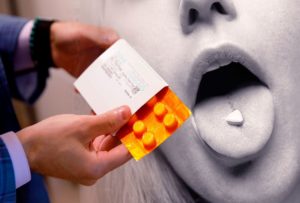From Salon: “As psychedelic advocates and practitioners with decades of experience, having worked with thousands of people, we believe we need a serious examination of whether the current mental health industry is the place for psychedelic drugs. Looking at the industry historically, there have been repeated claims of breakthrough modalities that would bring psychiatry into the realm of medical science. Yet none of these claims have demonstrated a high benchmark of legitimate authority, and many have even been harmful. While we applaud the efforts that are underway for decriminalization, and are excited by the potential to learn from the wealth of traditional and underground practitioners, much will be lost in the process of medicalization.
. . . If psychedelics hold promise, maybe it is because they do not work in linear ways or provide overnight results. Psychedelic experiences can be expansive. They can lead people on paths of self-inquiry and growth that extend through time and space, bringing forward new challenges and insights that become personal reference points, even years later. As Robert Whitaker points out, ‘That doesn’t fit a medical model that gets you FDA approval. You can’t say, “We have these agents for exploring and coming to think differently about the world.”‘ The necessity of reductive research here is to come up with a strict clinical protocol that will lead to replicable changes for anyone with a given diagnosis. This rigidity belies the organic and expansive nature of the psychedelic experience. ‘If they’re going to be agents of exploration,’ asks Whitaker, ‘why do you need a doctor for that? Why do you go to medical school for that?’
There is a need for research into psychedelics as they present an opportunity to recontextualize how we think about and experience suffering. However, drowned in the media hype of psychedelic advocacy organizations and the mental health industry, there is little public discourse about the potential implications of moving psychedelics into a system with such a problematic history.”












